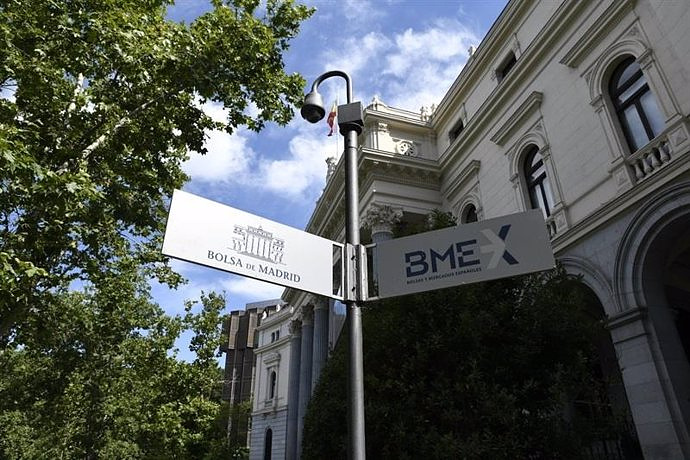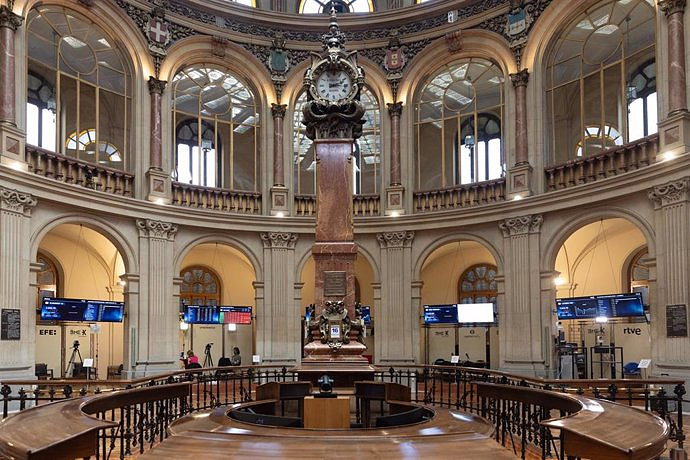MADRID, 29 Dic. (EUROPA PRESS) -
The Constitutional Court (TC) will meet this Thursday, at 1:00 p.m., in a Government Plenary to examine the suitability of the candidates of the Government and the General Council of the Judiciary (CGPJ) to the guarantee court itself.
The president of the court, Pedro González-Trevijano, has summoned the magistrates to start the process to replace the four Constitutional magistrates who saw their mandate expire on June 12. Thus, the internal process will begin so that the partial renewal of the court can be carried out.
Last Tuesday, the Constitutional Court reported that it would convene a Government Plenary "immediately" once the appointment agreement adopted by the CGPJ was received at its headquarters. The governing body of the judges sent its agreement on Wednesday morning and González-Trevijano, two hours later, communicated the date and time of the meeting.
That the Constitutional Court meet in said Government Plenary is the first step to examine the suitability and verify the requirements that the four proposed candidates must meet: the magistrate of the National Court and former Minister of Justice Juan Carlos Campo and the former general director of the Ministry of Presidency Laura Díez --on behalf of the Government--; and the magistrate of the Supreme Court (TS) César Tolosa and the retired magistrate of the TS María Luisa Segoviano --by the CGPJ--.
The Organic Law of the Constitutional Court (LOTC) establishes the requirements that those chosen by Moncloa and the CGPJ must meet: those indicated must be Spanish citizens who are magistrates, prosecutors, lawyers, university professors or public officials, "all of them jurists of recognized competence with more than 15 years of professional or active practice in the respective function".
After receiving the approval of the court in said Government Plenary, the new entrants will swear or promise the position before King Felipe VI, who is responsible for appointing them, for a period of nine years. Concluded this formal act before the King, the candidates will now be able to take office in the TC.
The four magistrates appointed by the Government and the CGPJ will replace the president of the TC, Pedro González-Trevijano; its vice president, Juan Antonio Xiol; and the magistrates Antonio Narváez and Santiago Martínez-Vares, who make up the third that the Constitution commissions to renew the Executive and the governing body of judges.
With the entry of these four candidates, the table of majorities in the Constitutional changes. Until now, the court included 6 magistrates from the conservative bloc and 5 from the progressive bloc.
In fact, last week the TC resolved an unprecedented vote with this formula --6 in favor and 5 against-- to urgently paralyze the parliamentary process, already in the Senate, of the two amendments that modified the system of election and arrival of the two candidates to the TC appointed by the CGPJ, thus admitting the very precautionary measures requested by the PP in its appeal against said amendments.
The arrival of Segoviano, Campo and Díez will change this scenario and favor the progressive wing, which will manage to gather 7 magistrates. The conservatives, for their part, will keep 4.
All this, while waiting for the vacancy of magistrate Alfredo Montoya to be filled, who left office in the summer for health reasons. The law stipulates that the position of this magistrate will be filled in the same way in which he was appointed and for the remaining time; that is, through the Senate. Before his appointment, the chosen one must first appear before the corresponding commission of the legislative headquarters.
Once the four new Constitutional members take office, the new one will be elected to replace González-Trevijano. It will be a secret vote that, in a first round, will require an absolute majority and, in the event that it is not reached, a second vote will be carried out, which will be resolved by simple majority.
In the event of a tie, a new vote will be taken. If the situation is repeated, the one with the greatest seniority in the TC will be proposed for the position of president; In case there are two magistrates with the same seniority, the older one will be proposed.
The name of the president and the elected vice president will be submitted to the head of state for their appointment for a period of three years. They can only be re-elected once.
Until now, the two names that have emerged as candidates to preside over the guarantee body are those of Cándido Conde-Pumpido and María Luisa Balaguer, both from the progressive wing of the court.
Sources from the guarantee body consulted by Europa Press rule out for now entering into an assessment of whether the entry of the new magistrates into the Constitutional Court may mean that the balance tilts in favor of Conde-Pumpido or Balaguer. The same sources are limited to celebrating that there is finally an agreement to renew the court.

 Exploring Cardano: Inner Workings and Advantages of this Cryptocurrency
Exploring Cardano: Inner Workings and Advantages of this Cryptocurrency Seville.- Economy.- Innova.- STSA inaugurates its new painting and sealing hangar in San Pablo, for 18 million
Seville.- Economy.- Innova.- STSA inaugurates its new painting and sealing hangar in San Pablo, for 18 million Innova.- More than 300 volunteers join the Andalucía Compromiso Digital network in one month to facilitate access to ICT
Innova.- More than 300 volunteers join the Andalucía Compromiso Digital network in one month to facilitate access to ICT Innova.-AMP.- Ayesa acquires 51% of Sadiel, which will create new technological engineering products and expand markets
Innova.-AMP.- Ayesa acquires 51% of Sadiel, which will create new technological engineering products and expand markets Illa does not clarify whether he will agree with Junts and Aragonès and Rull face a lack of unity
Illa does not clarify whether he will agree with Junts and Aragonès and Rull face a lack of unity At least twelve Palestinians die in Israeli bombings against Rafah
At least twelve Palestinians die in Israeli bombings against Rafah Gaza War | Direct: The Israeli Army takes the Palestinian part of the Rafah crossing
Gaza War | Direct: The Israeli Army takes the Palestinian part of the Rafah crossing Prosegur Cash will distribute the first payment of its total dividend of 0.0404 euros on May 14
Prosegur Cash will distribute the first payment of its total dividend of 0.0404 euros on May 14 How Blockchain in being used to shape the future
How Blockchain in being used to shape the future Not just BTC and ETH: Here Are Some More Interesting Coins Worth Focusing on
Not just BTC and ETH: Here Are Some More Interesting Coins Worth Focusing on UMH researchers are working on a high-quality apricot crop that requires less irrigation water
UMH researchers are working on a high-quality apricot crop that requires less irrigation water The UPV develops an application to improve the quality of life of patients with glioblastoma
The UPV develops an application to improve the quality of life of patients with glioblastoma A sensor system obtains the fingerprint of essential oils and detects if they have been adulterated
A sensor system obtains the fingerprint of essential oils and detects if they have been adulterated Faraday UPV presents the 'Origin' rocket to exceed 10 km of flight: "It is the beginning of the journey to space"
Faraday UPV presents the 'Origin' rocket to exceed 10 km of flight: "It is the beginning of the journey to space" A million people demonstrate in France against Macron's pension reform
A million people demonstrate in France against Macron's pension reform Russia launches several missiles against "critical infrastructure" in the city of Zaporizhia
Russia launches several missiles against "critical infrastructure" in the city of Zaporizhia A "procession" remembers the dead of the Calabria shipwreck as bodies continue to wash up on the shore
A "procession" remembers the dead of the Calabria shipwreck as bodies continue to wash up on the shore Prison sentences handed down for three prominent Hong Kong pro-democracy activists
Prison sentences handed down for three prominent Hong Kong pro-democracy activists ETH continues to leave trading platforms, Ethereum balance on exchanges lowest in 3 years
ETH continues to leave trading platforms, Ethereum balance on exchanges lowest in 3 years Investors invest $450 million in Consensys, Ethereum incubator now valued at $7 billion
Investors invest $450 million in Consensys, Ethereum incubator now valued at $7 billion Alchemy Integrates Ethereum L2 Product Starknet to Enhance Web3 Scalability at a Price 100x Lower Than L1 Fees
Alchemy Integrates Ethereum L2 Product Starknet to Enhance Web3 Scalability at a Price 100x Lower Than L1 Fees Mining Report: Bitcoin's Electricity Consumption Declines by 25% in Q1 2022
Mining Report: Bitcoin's Electricity Consumption Declines by 25% in Q1 2022 Oil-to-Bitcoin Mining Firm Crusoe Energy Systems Raised $505 Million
Oil-to-Bitcoin Mining Firm Crusoe Energy Systems Raised $505 Million Microbt reveals the latest Bitcoin mining rigs -- Machines produce up to 126 TH/s with custom 5nm chip design
Microbt reveals the latest Bitcoin mining rigs -- Machines produce up to 126 TH/s with custom 5nm chip design Bitcoin's Mining Difficulty Hits a Lifetime High, With More Than 90% of BTC Supply Issued
Bitcoin's Mining Difficulty Hits a Lifetime High, With More Than 90% of BTC Supply Issued The Biggest Movers are Near, EOS, and RUNE during Friday's Selloff
The Biggest Movers are Near, EOS, and RUNE during Friday's Selloff Global Markets Spooked by a Hawkish Fed and Covid, Stocks and Crypto Gain After Musk Buys Twitter
Global Markets Spooked by a Hawkish Fed and Covid, Stocks and Crypto Gain After Musk Buys Twitter Bitso to offset carbon emissions from the Trading Platform's ERC20, ETH, and BTC Transactions
Bitso to offset carbon emissions from the Trading Platform's ERC20, ETH, and BTC Transactions Draftkings Announces 2022 College Hoops NFT Selection for March Madness
Draftkings Announces 2022 College Hoops NFT Selection for March Madness
























